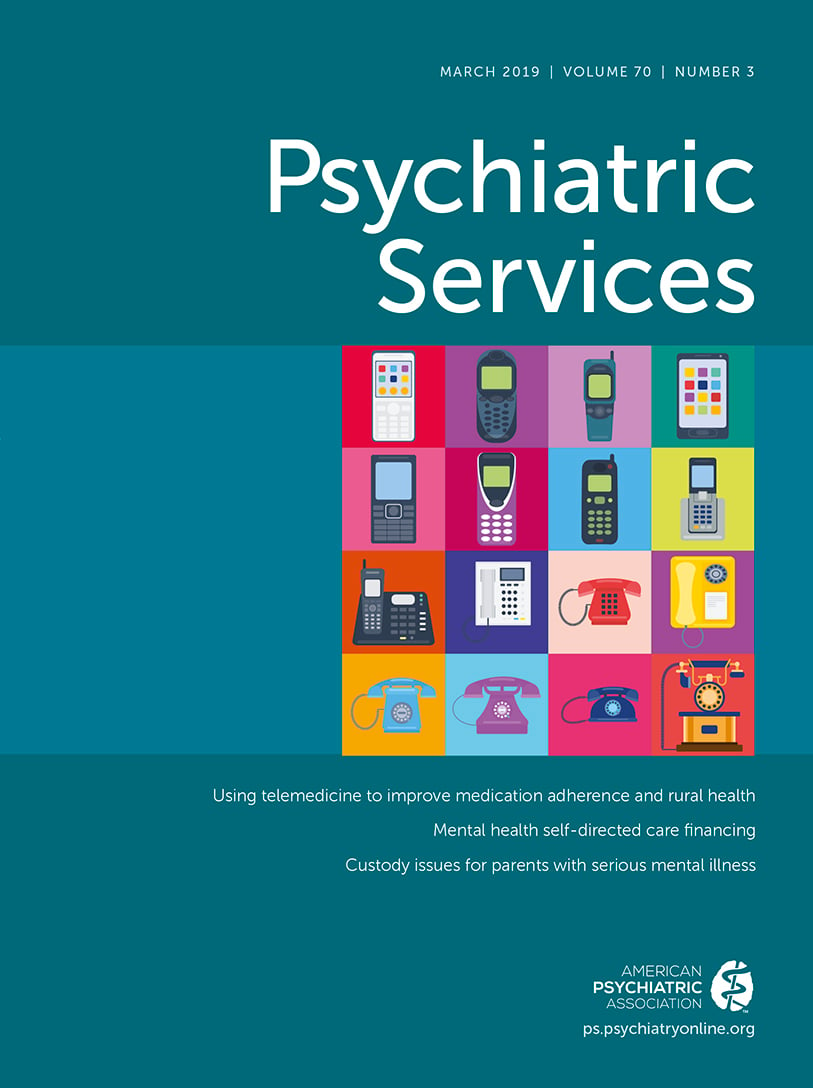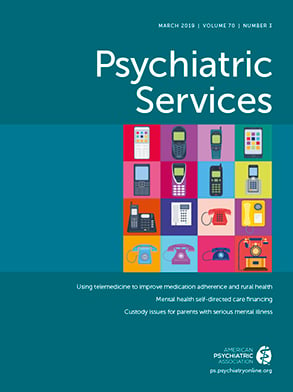TO THE EDITOR: Clozapine is a Food and Drug Administration–approved antipsychotic medication for both treatment-resistant schizophrenia and reduction in risk of recurrent suicidal behavior by persons with schizophrenia or schizoaffective disorder. Up to 30% of patients whose schizophrenia has not responded to other antipsychotics may benefit from clozapine (
1). Furthermore, there is increasing evidence that clozapine may have benefits beyond these two indications, with an emerging literature suggesting efficacy in reducing impulsive, aggressive behaviors for patients with or without a psychotic disorder. Despite clozapine’s benefits, this treatment is underutilized (
2), likely because 1% of clozapine users may develop severe neutropenia, which requires both ongoing hematological monitoring and reporting to a national program.
The past few decades have seen a shift in where people with severe mental illness receive treatment. Estimates indicate that compared with a few decades earlier, ten times more people with severe mental illness are now treated in jails and prisons than in state psychiatric hospitals (
3). The prevalence of severe mental illness in the general population is 4% (
4), compared with three to four times that in incarcerated populations (
5).
Although data exist for clozapine utilization in community settings across the United States, we were not able to find any reports of the frequency of clozapine use in jails or prisons. This letter aims to provide the first survey of clozapine utilization in state prison systems.
The Coalition of Correctional Health Authorities (CCHA) administered a national survey to each state correctional entity. The CCHA, a subgroup of the American Correctional Association and designed to promote excellence in correctional health care, represents each state prison system along with the Federal Bureau of Prisons. State representatives were informed that data would be reported only in aggregate in order to ensure privacy and confidentiality.
Data collection was approved by the University of North Carolina Office of Human Research Ethics. Twenty-one states (42%) responded, with one state unable to provide data. A total of 504,645 inmates were being held by the 20 states that responded (39% of the total state prison population). Of these 20 states, 13 (65%) reported that clozapine was available on their formulary, and seven (35%) reported that it was not. In states where clozapine was available, 191 inmates were receiving it (range 0–40 individuals, mdn=8 inmates per state).
These data from state prisons appear consistent with those from the nonincarcerated population with severe mental illness in that clozapine is underused. Nevertheless, it was somewhat unexpected that one-third of states did not include clozapine on their formulary. Due to the shifting of treatment of individuals with severe mental illness from hospitals to state correctional facilities, the correctional facilities now have an additional responsibility to care for these inmates with evidence-based treatments. A recent white paper issued by the Substance Abuse and Mental Health Services Administration suggests that all correctional facilities should have the capacity to offer clozapine to inmates (
6). Consideration needs to be given to help support correctional facilities with the additional resources and expertise needed to help adequately manage this vulnerable population.

